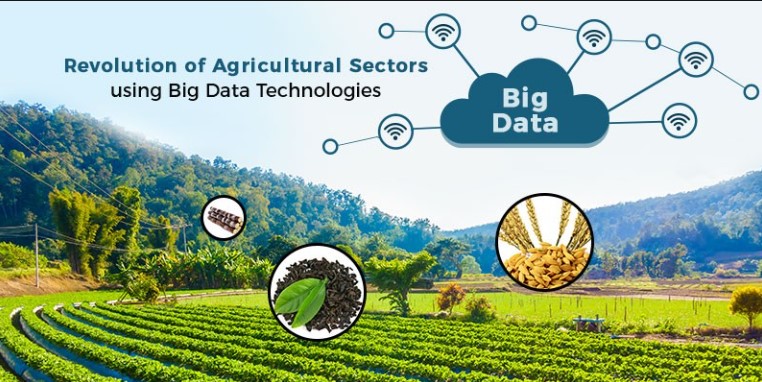Big data analytics is revolutionizing the agricultural industry by providing farmers with insights to optimize crop yield and improve farming efficiency. By analyzing large volumes of data from various sources, including weather patterns, soil conditions, and crop health, farmers can make data-driven decisions that can lead to higher yields and cost savings. This article explores the use of big data in agriculture and its benefits for boosting crop yield and farming efficiency.
What is Big Data in Agriculture?
Big data in agriculture refers to the use of big data analytics to optimize crop yield and farming efficiency. This data can come from a variety of sources, including weather sensors, satellite imagery, soil sensors, and crop health sensors. By analyzing this data, farmers can gain insights into crop growth, soil health, and weather patterns, among other things.
How Can Farmers Leverage Big Data in Agriculture?
Precision Agriculture
Big data analytics can help farmers practice precision agriculture, where they can optimize crop yield by monitoring crop health and soil conditions in real-time. By analyzing data from various sources, farmers can make informed decisions about crop management, including fertilization, irrigation, and pest control.
Predictive Analytics
Big data analytics can also help farmers predict crop yield and weather patterns, allowing them to plan their operations and make informed decisions about planting, harvesting, and irrigation.
Cost Reduction
Big data analytics can also help farmers reduce costs by optimizing resource utilization, such as water and fertilizer usage.
Benefits of Big Data in Agriculture
Higher Crop Yield
By leveraging big data analytics, farmers can optimize crop yield and increase production.
Cost Savings
Big data analytics can help farmers reduce costs by optimizing resource utilization and reducing waste.
Environmental Sustainability
Big data analytics can help farmers adopt more sustainable practices by reducing resource waste and optimizing resource utilization.
Challenges of Big Data in Agriculture
Data Quality
The quality of the data used for analysis can affect the accuracy of the insights generated. Farmers need to ensure that their data is accurate and reliable.
Technology Adoption
The adoption of big data analytics technology can be a challenge for farmers, particularly those with limited resources or technical expertise.
Data Privacy
The use of big data analytics raises privacy concerns. Farmers need to ensure that they comply with relevant regulations and protect personal data.
Conclusion
Big data analytics has the potential to revolutionize the agricultural industry by providing farmers with insights to optimize crop yield and improve farming efficiency. While there are challenges associated with big data in agriculture, these can be overcome with proper planning and investment. By leveraging big data analytics, farmers can increase crop yield, reduce costs, and adopt more sustainable practices.
FAQs
- What is big data in agriculture? Big data in agriculture refers to the use of big data analytics to optimize crop yield and farming efficiency. This data can come from a variety of sources, including weather sensors, satellite imagery, soil sensors, and crop health sensors.
- How can farmers leverage big data in agriculture? Farmers can leverage big data in agriculture for precision agriculture, predictive analytics, and cost reduction.
- What are the benefits of big data in agriculture? The benefits of big data in agriculture include higher crop yield, cost savings, and environmental sustainability.
- What are the challenges of big data in agriculture? The challenges of big data in agriculture include data quality, technology adoption, and data privacy.
- How can farmers overcome the challenges of big data in agriculture? Farmers can overcome the challenges of big data in agriculture by ensuring data quality, investing in technology adoption and training, complying with relevant regulations, and protecting personal data.
Read More :
- Maximizing the Potential of Big Data: Best Practices for Effective Data Management
- Big Data for Social Good : How Data Analytics is Making a Positive Impact on Society
- Big Data and Marketing: Understanding Customer Behavior for Better Campaigns
- Big Data in Finance : Predictive Analytics for Better Investment Strategies
- Unlocking the Power of Big Data : A Guide for Businesses
Pcode Show:
